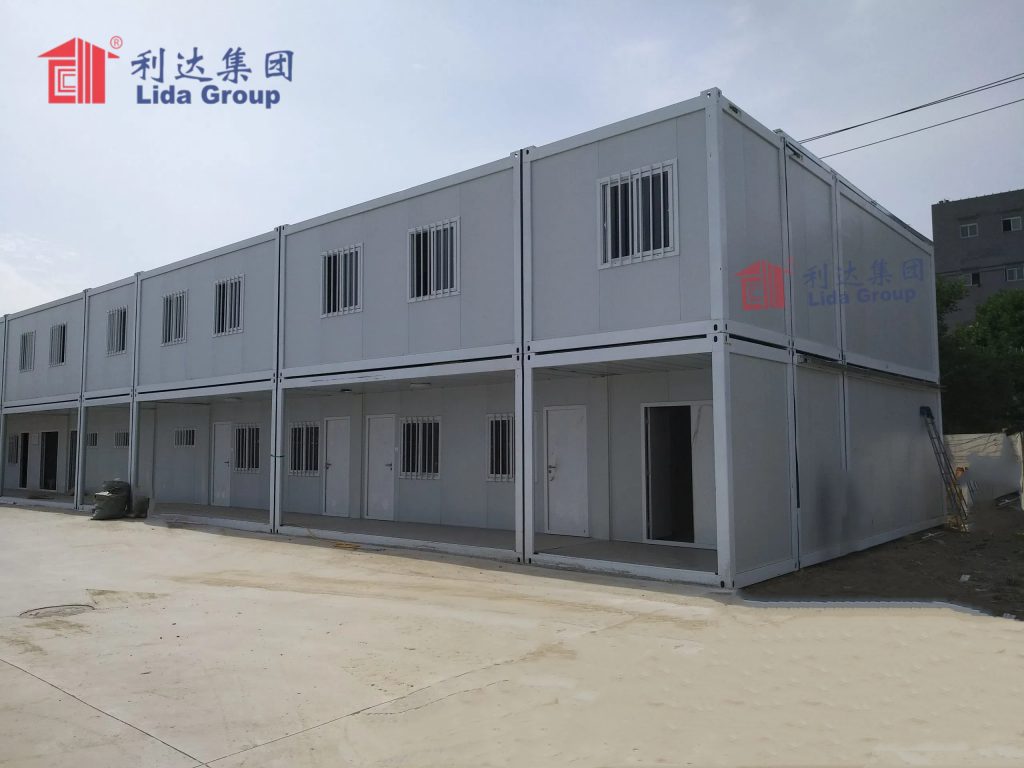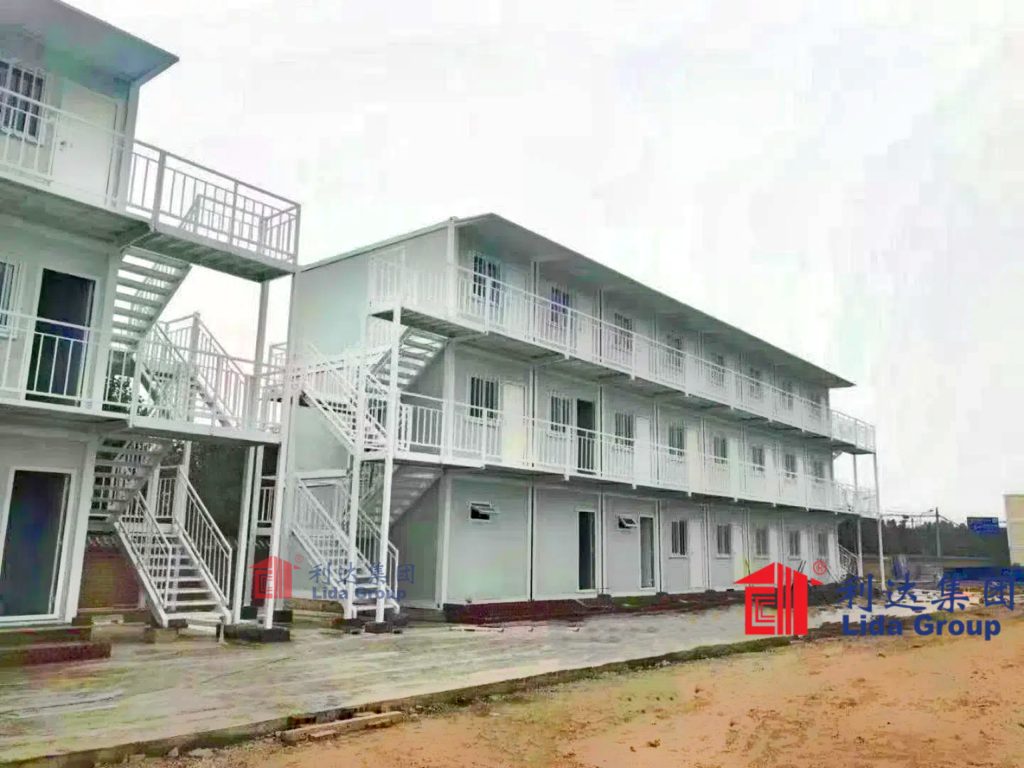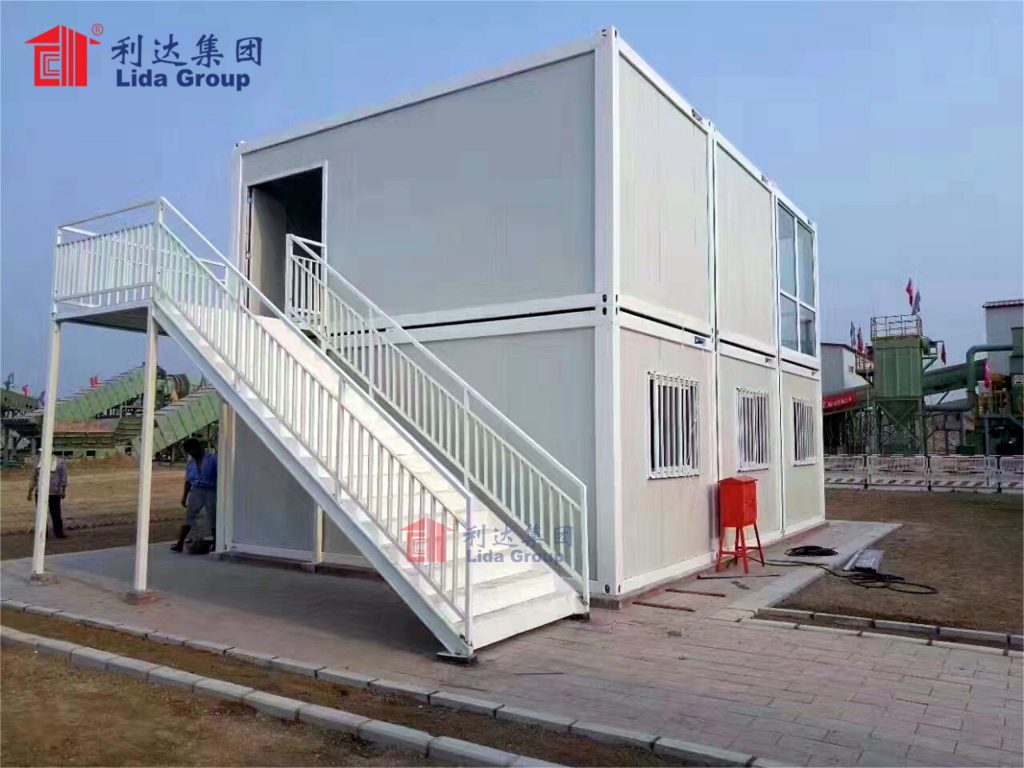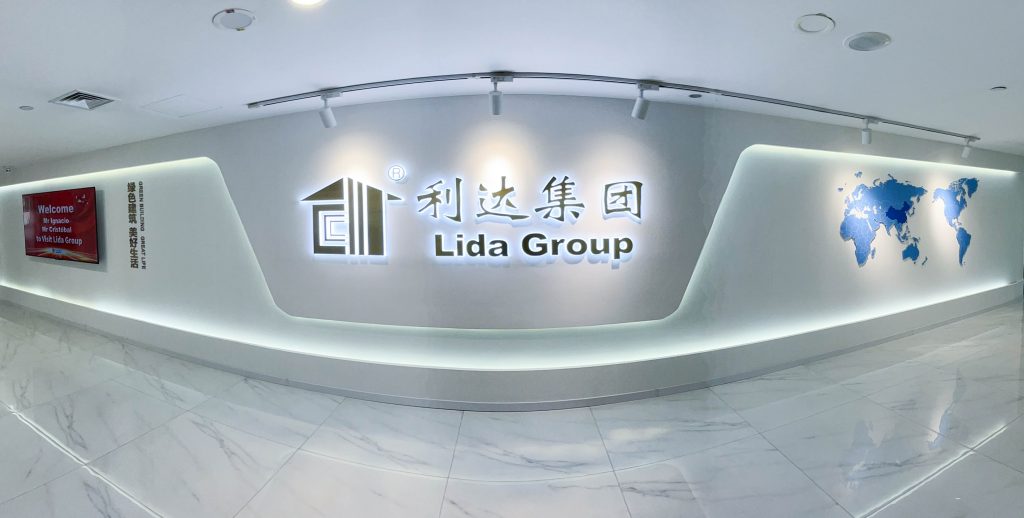**Introduction**
Urbanization is one of the most significant global trends of the 21st century. As cities expand to accommodate growing populations, the demand for affordable, sustainable, and quickly deployable housing solutions has never been more urgent. Traditional construction methods often struggle to keep pace with the rapid rate of urban growth, leading to housing shortages, overcrowding, and the proliferation of informal settlements. In response to these challenges, innovative solutions such as mobile container apartments have emerged as a viable alternative. Lida Group, a pioneer in modular construction, has developed mobile container apartments that offer a quick, reliable, and cost-effective solution to urban housing needs. This article explores the features, benefits, and implications of Lida Group’s mobile container apartments in the context of urban expansion.
**The Urban Housing Crisis**
The global urban population is expected to increase by 2.5 billion people by 2050, with nearly 90% of this growth occurring in Asia and Africa. This rapid urbanization poses significant challenges for city planners, governments, and developers. Traditional construction methods, which are often time-consuming, labor-intensive, and resource-heavy, are ill-suited to meet the urgent demand for housing. As a result, many cities are grappling with housing shortages, rising property prices, and the growth of slums.
In this context, innovative housing solutions are needed to provide affordable, sustainable, and scalable housing options. Mobile container apartments, such as those developed by Lida Group, offer a promising solution to these challenges. By repurposing shipping containers into modular living spaces, these apartments can be quickly deployed, easily relocated, and customized to meet the needs of diverse urban populations.
**What Are Mobile Container Apartments?**
Mobile container apartments are modular housing units constructed from repurposed shipping containers. These containers, which are typically made of steel, are designed to be durable, weather-resistant, and easy to transport. By converting these containers into living spaces, developers can create affordable and sustainable housing solutions that can be quickly deployed in urban areas.
Lida Group’s mobile container apartments are designed with flexibility and functionality in mind. Each unit is equipped with essential amenities, including plumbing, electrical systems, insulation, and ventilation. The apartments can be configured as single units or combined to create multi-story buildings, depending on the needs of the community. Additionally, the modular nature of these apartments allows for easy expansion or reconfiguration as housing demands change.

**Key Features of Lida Group’s Mobile Container Apartments**
1. **Quick Deployment**: One of the most significant advantages of mobile container apartments is their ability to be quickly deployed. Traditional construction projects can take months or even years to complete, but mobile container apartments can be assembled and installed in a matter of weeks. This rapid deployment is particularly valuable in emergency situations, such as natural disasters or sudden population influxes.
2. **Cost-Effectiveness**: Mobile container apartments are significantly more affordable than traditional housing options. The use of repurposed shipping containers reduces material costs, while the modular construction process minimizes labor and construction time. This cost-effectiveness makes mobile container apartments an attractive option for governments, NGOs, and private developers seeking to provide affordable housing.
3. **Sustainability**: Repurposing shipping containers into housing units is an environmentally friendly solution that reduces waste and promotes recycling. Additionally, Lida Group’s mobile container apartments are designed with energy-efficient features, such as solar panels, rainwater harvesting systems, and high-quality insulation. These features not only reduce the environmental impact of the apartments but also lower utility costs for residents.
4. **Customizability**: Mobile container apartments can be easily customized to meet the specific needs of different communities. Lida Group offers a range of design options, from basic single-unit apartments to more complex multi-story buildings. The interior layout, finishes, and amenities can also be tailored to suit the preferences and requirements of residents.
5. **Portability**: Unlike traditional buildings, mobile container apartments can be easily relocated if needed. This portability is particularly useful in situations where housing needs are temporary or where land use priorities change over time. For example, mobile container apartments can be used to provide temporary housing for construction workers, students, or disaster victims, and then relocated to another site once the need has passed.
6. **Durability**: Shipping containers are designed to withstand harsh conditions, making them an ideal material for housing in urban environments. Lida Group’s mobile container apartments are built to last, with reinforced structures and weather-resistant finishes that ensure long-term durability.
**Applications of Mobile Container Apartments in Urban Expansion**
Mobile container apartments have a wide range of applications in urban expansion, including:
1. **Affordable Housing**: One of the most pressing challenges of urban expansion is providing affordable housing for low- and middle-income residents. Mobile container apartments offer a cost-effective solution that can be quickly deployed to address housing shortages in rapidly growing cities.
2. **Emergency Housing**: In the aftermath of natural disasters or other emergencies, mobile container apartments can provide temporary housing for displaced populations. Their quick deployment and portability make them an ideal solution for emergency situations.
3. **Student Housing**: Many cities face a shortage of affordable housing for students, particularly in areas with large universities. Mobile container apartments can be used to create student housing complexes that are both affordable and conveniently located near campus.
4. **Workforce Housing**: In cities with large construction or infrastructure projects, mobile container apartments can provide temporary housing for workers. This not only ensures that workers have a safe and comfortable place to live but also reduces the strain on local housing markets.
5. **Urban Redevelopment**: Mobile container apartments can be used as part of urban redevelopment projects to provide temporary housing for residents while their homes are being renovated or rebuilt. Once the redevelopment is complete, the apartments can be relocated to another site.
6. **Tourism and Hospitality**: In tourist destinations, mobile container apartments can be used to create affordable and eco-friendly accommodations for visitors. Their modular design allows for easy expansion during peak tourist seasons.

**Case Studies: Successful Implementation of Mobile Container Apartments**
Several cities around the world have successfully implemented mobile container apartments to address housing challenges. Below are a few examples:
1. **Amsterdam, Netherlands**: In Amsterdam, mobile container apartments have been used to provide affordable housing for students and young professionals. The apartments are located in a vibrant urban area, close to public transportation, schools, and amenities. The project has been praised for its innovative design and sustainability features.
2. **Christchurch, New Zealand**: Following the 2011 earthquake in Christchurch, mobile container apartments were used to provide temporary housing for displaced residents. The apartments were quickly deployed and offered a safe and comfortable living environment while the city was being rebuilt.
3. **Shanghai, China**: In Shanghai, mobile container apartments have been used to house migrant workers who are employed in the city’s construction and manufacturing sectors. The apartments are located near industrial areas, reducing commuting times and improving the quality of life for workers.
4. **Los Angeles, USA**: In Los Angeles, mobile container apartments have been used as part of a broader effort to address the city’s homelessness crisis. The apartments provide a safe and stable living environment for individuals transitioning out of homelessness, with access to social services and support programs.
**Challenges and Limitations**
While mobile container apartments offer many benefits, they are not without challenges and limitations. Some of the key issues include:
1. **Perception and Stigma**: In some communities, there may be a stigma associated with living in a container apartment. Efforts are needed to change public perceptions and highlight the benefits of this innovative housing solution.
2. **Regulatory Barriers**: In some cities, zoning laws and building codes may pose barriers to the deployment of mobile container apartments. Governments and policymakers need to work with developers to create a regulatory environment that supports modular housing solutions.
3. **Infrastructure Requirements**: While mobile container apartments are relatively easy to deploy, they still require access to basic infrastructure such as water, electricity, and sewage systems. In some urban areas, particularly in developing countries, this infrastructure may be lacking or inadequate.
4. **Long-Term Durability**: While shipping containers are durable, they may require maintenance over time to address issues such as rust or wear and tear. Developers need to ensure that mobile container apartments are built to high standards and that residents have access to maintenance services.
5. **Space Limitations**: Shipping containers are inherently limited in size, which can pose challenges for families or individuals who require more space. However, this limitation can be addressed by combining multiple containers or using creative design solutions to maximize space.

**Future Prospects**
The future of mobile container apartments looks promising, particularly as urbanization continues to accelerate around the world. As cities grapple with the challenges of housing shortages, rising property prices, and environmental sustainability, mobile container apartments offer a flexible, affordable, and eco-friendly solution.
Lida Group is at the forefront of this innovation, continuously improving the design and functionality of its mobile container apartments. Future developments may include the integration of smart home technologies, such as energy management systems and IoT devices, to further enhance the living experience for residents. Additionally, advancements in modular construction techniques and materials could lead to even more efficient and sustainable housing solutions.
Governments, NGOs, and private developers have a critical role to play in promoting the adoption of mobile container apartments. By investing in this innovative housing solution, they can help address the urgent need for affordable and sustainable housing in urban areas. Furthermore, public awareness campaigns and education initiatives can help overcome the stigma associated with container housing and highlight its many benefits.
**Conclusion**
Urban expansion presents both challenges and opportunities for cities around the world. As populations grow and cities expand, the demand for affordable, sustainable, and quickly deployable housing solutions will continue to rise. Mobile container apartments, such as those developed by Lida Group, offer a promising solution to these challenges. With their quick deployment, cost-effectiveness, sustainability, and customizability, mobile container apartments are well-suited to meet the diverse housing needs of urban populations.
While there are challenges and limitations to overcome, the potential benefits of mobile container apartments are significant. By embracing this innovative housing solution, cities can address housing shortages, reduce environmental impact, and improve the quality of life for their residents. As urbanization continues to shape the future of our world, mobile container apartments represent a forward-thinking approach to housing that is both practical and sustainable.
In conclusion, Lida Group’s mobile container apartments are more than just a housing solution; they are a testament to the power of innovation and creativity in addressing some of the most pressing challenges of our time. As cities continue to grow and evolve, mobile container apartments will play an increasingly important role in shaping the urban landscape of the future.

Related news
-
Lida Group’s Modular Prefab Houses Deliver Cost-Effective and Eco-Friendly Housing Solutions Worldwide
2025-02-12 13:34:59
-
Sustainable and Scalable: Lida Group’s Temporary Labor Camps Set New Standards in Workforce Housing
2025-02-12 13:08:45
-
Lida Group Launches Mobile Container Apartments for Flexible and Modern Living Spaces
2025-02-12 11:37:01
contact us
- Tel: +86-532-88966982
- Whatsapp: +86-13793209022
- E-mail: sales@lidajituan.com


